I know it’s been awhile since I’ve done one of these, and what once was a monthly (or sometimes weekly) feature is down to two or three a year. As a guy I know would say, that’s a shame.
I also know it’s unusual to have WLR on a weekday, but this weekend I’m going to take a break from politics and do an all-music weekend – WLR today and Sunday sandwiching a music review tomorrow. Next week you may get the treat of two because I have a backlog of music to review. Besides a somewhat humdrum municipal election, it’s a quiet political time right now.
I’m starting with an event that’s become somewhat of a musical dynamo thanks to its two-stage setup, the Good Beer Festival. It featured twelve acts, with the bar stage primarily hosting acoustic acts while the main stage had full bands.
Bear in mind I also work the event so I don’t get to hear every song. Some of these are more detailed than others, but I always like to lead with the schedule to help keep track.
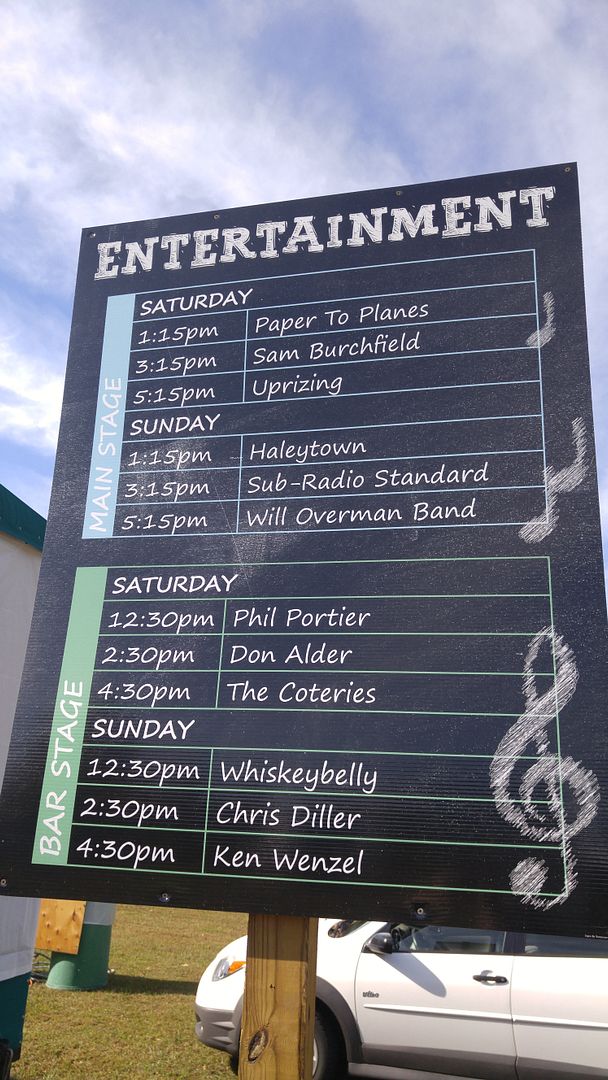
So I begin with the acoustic stylings of Phil Portier, who opened up on the bar stage. I will say I knew the Joe Jackson song he opened with so I could insert the “where?” at the proper place.
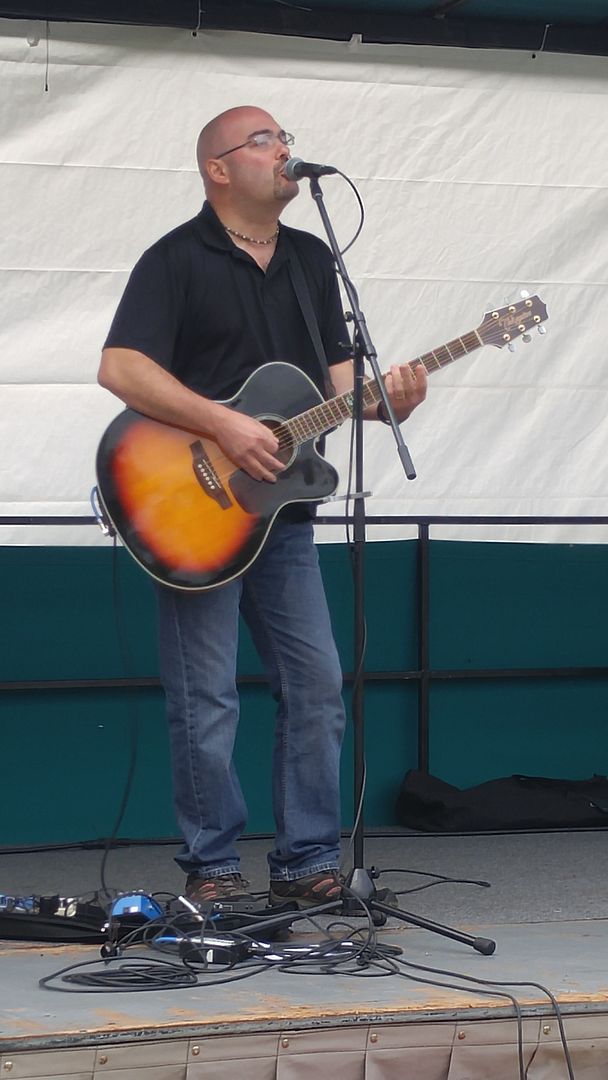
On the other end as Phil wrapped up was Paper To Planes, an acoustic duo hailing all the way from Kansas City.
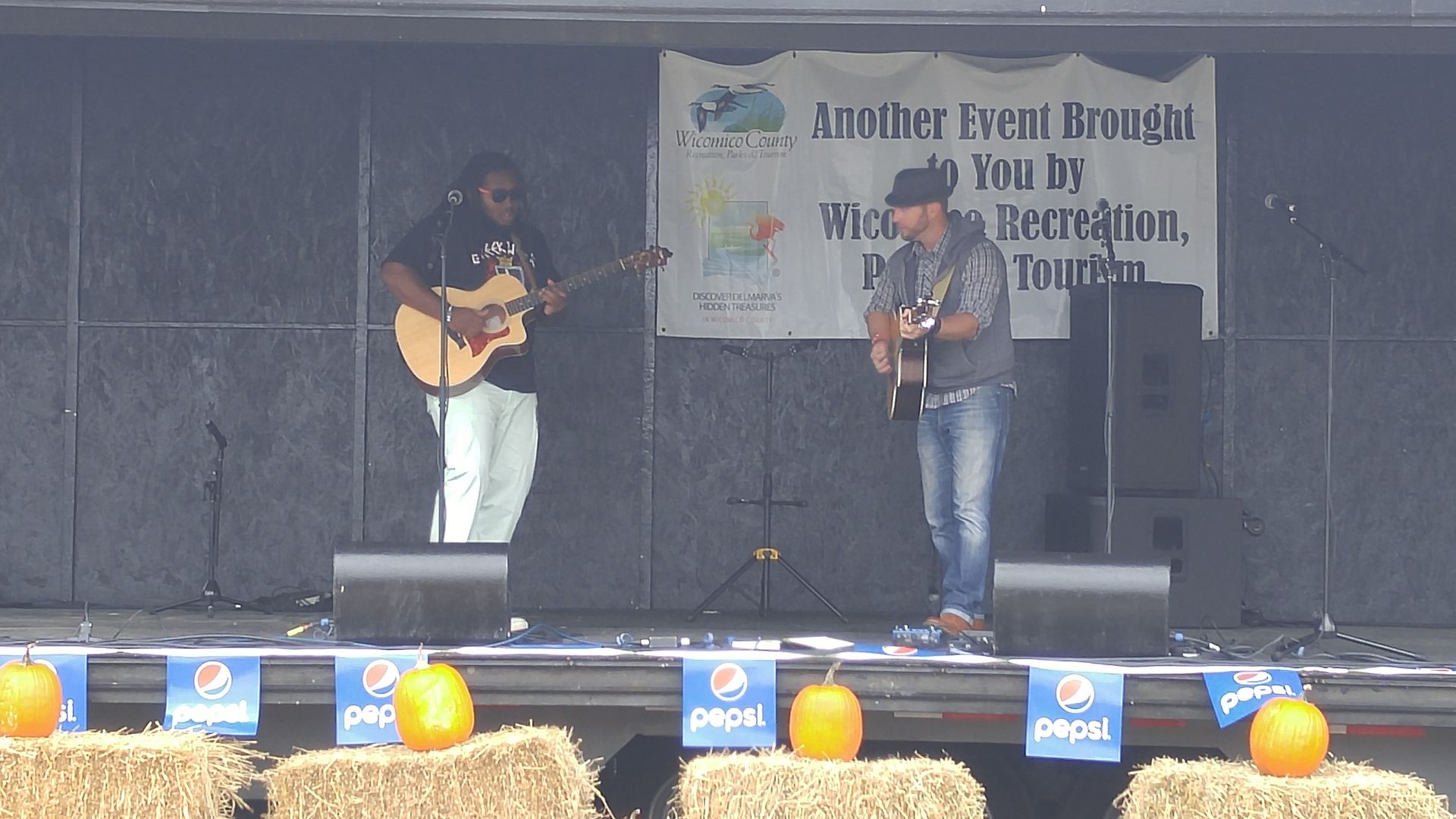
I believe Don Adler was playing the GBF for the second or third time. But I didn’t get to see him play the unusual instrument at his feet.
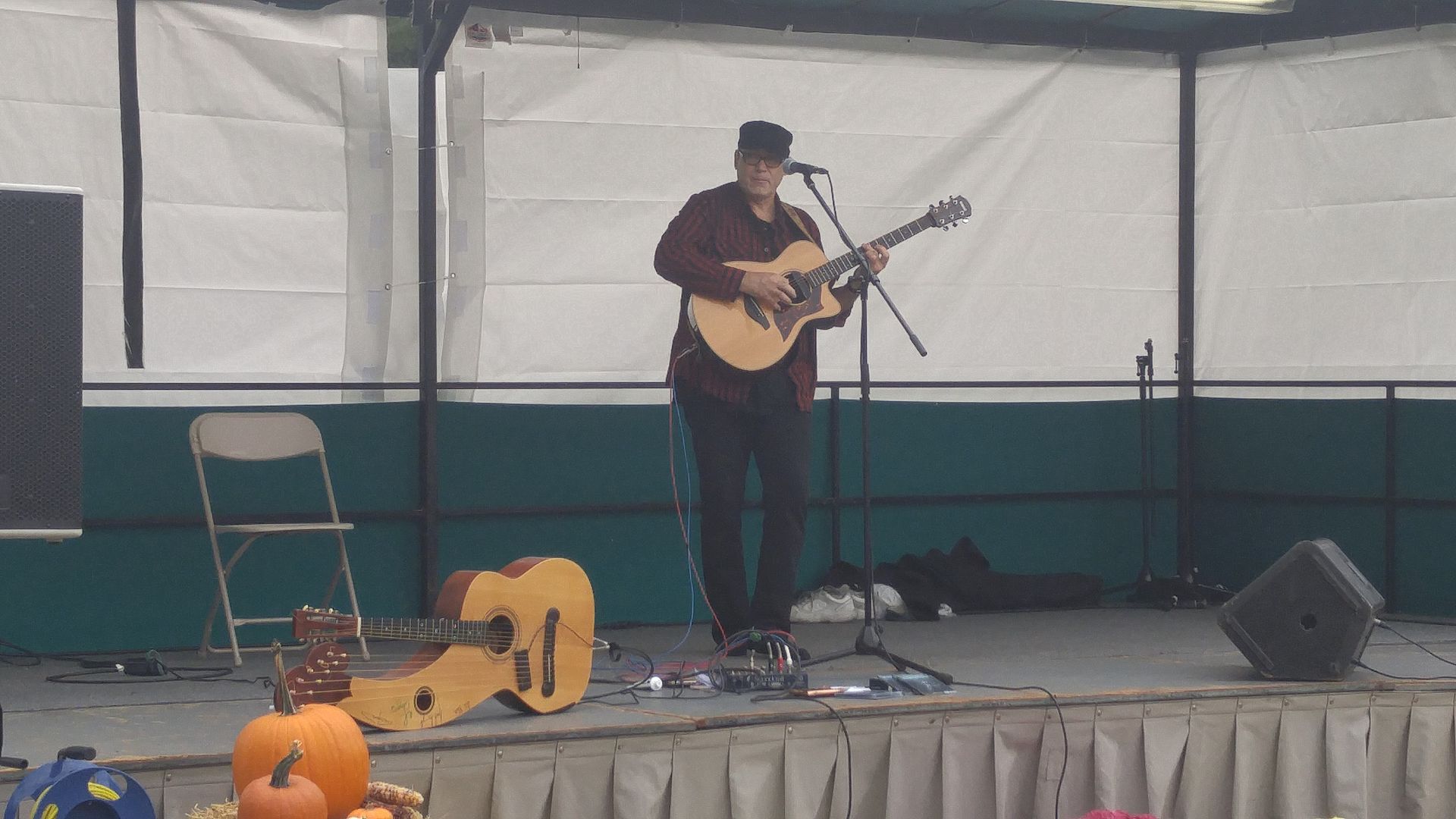
Sam Birchfield was the first group where I noticed the merch table.
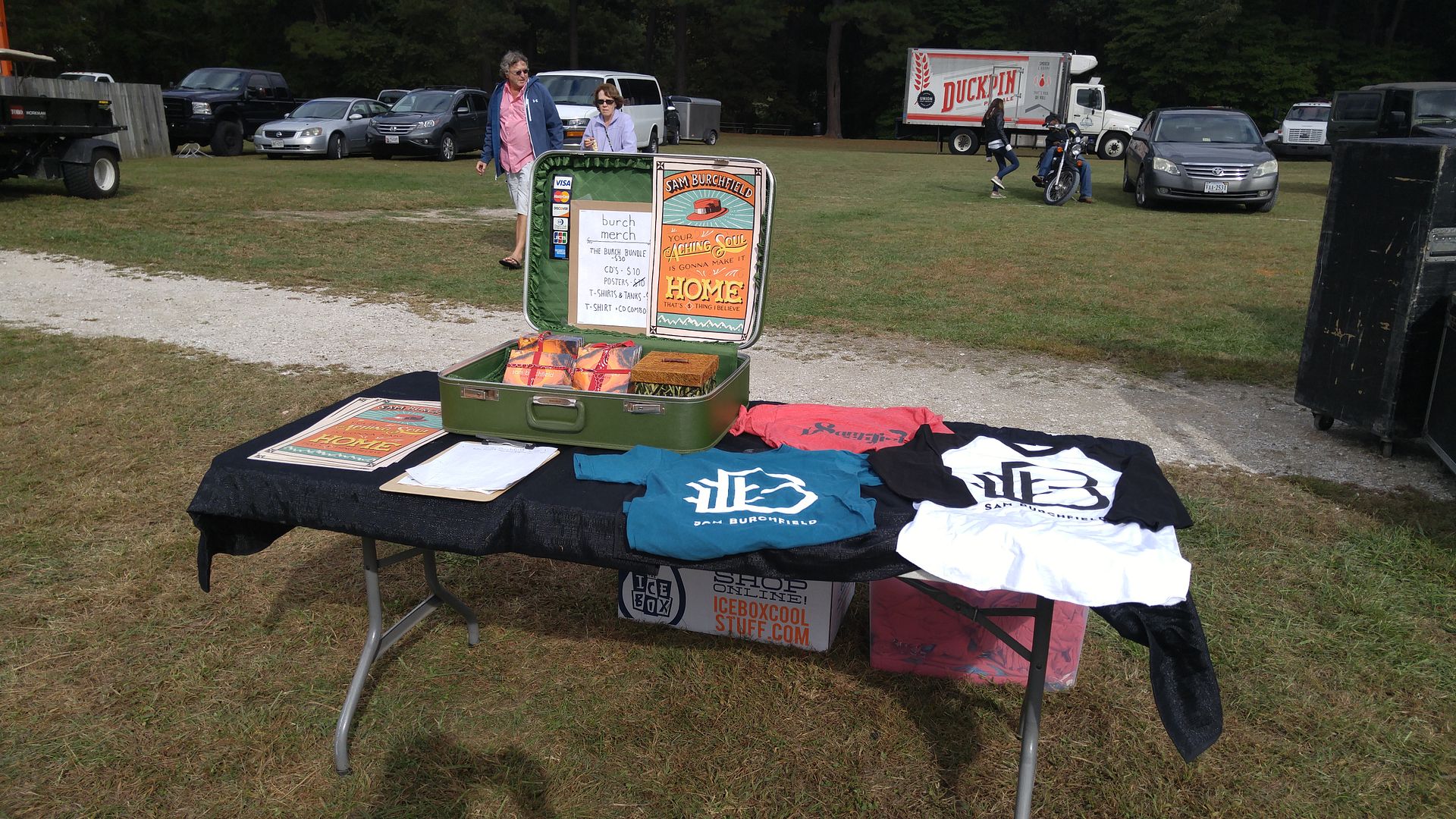
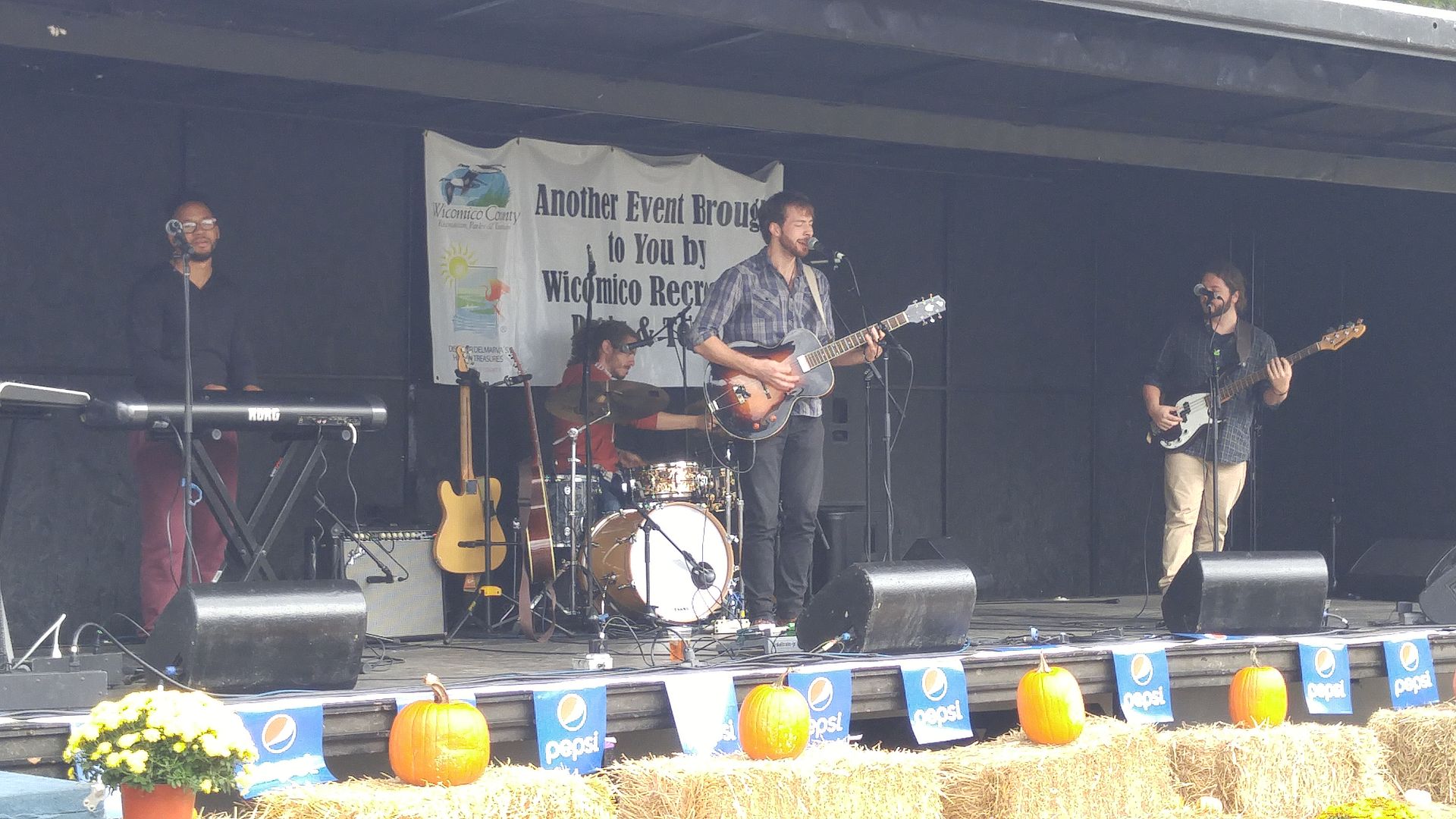
The Coteries at the bar stage also had merch. The New Jersey-based trio was disappointed they didn’t get to enjoy more of the event because of New Jersey traffic. They have several shows set up, which you’ll see if you look closely.

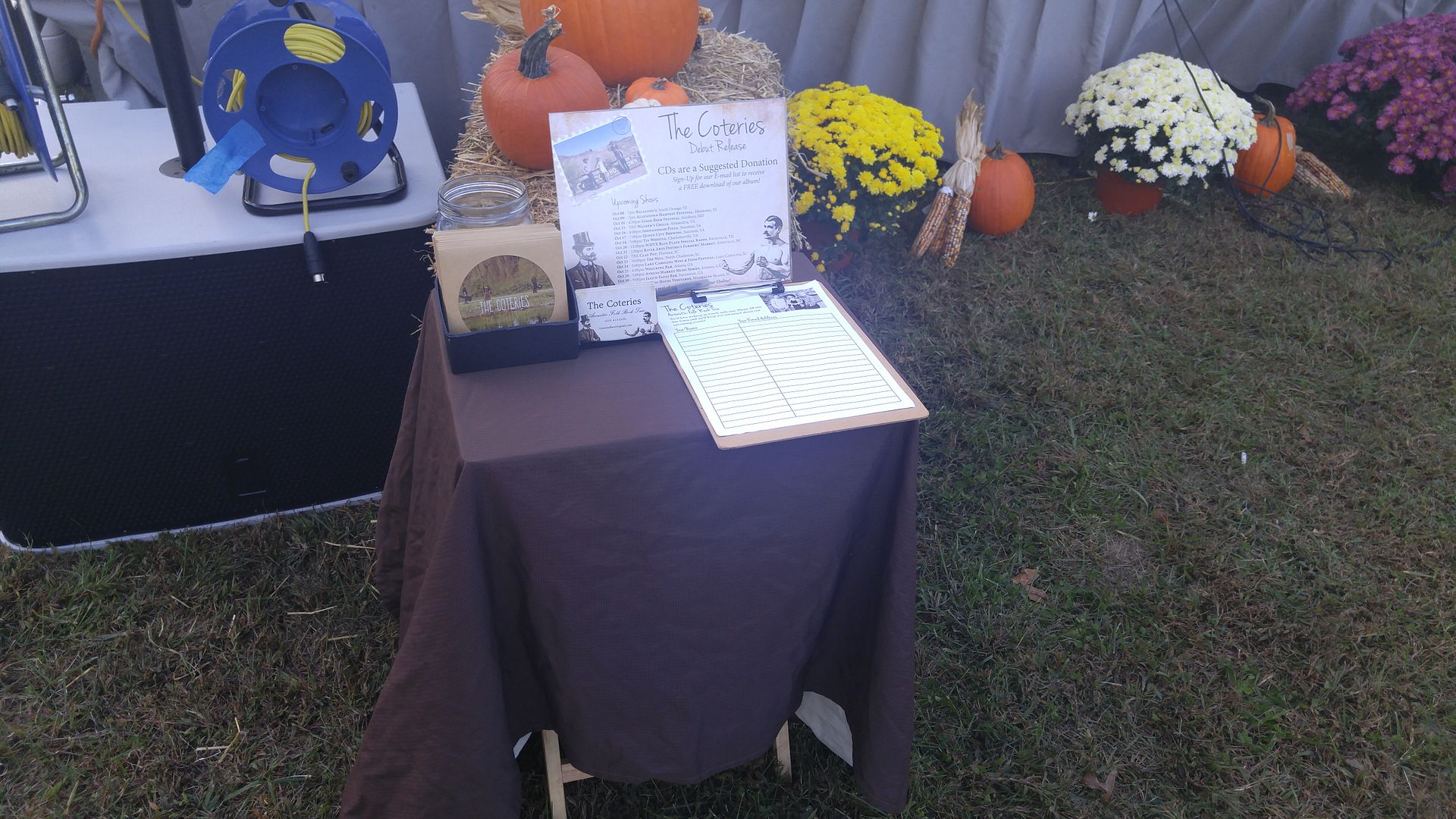
Wrapping up things on Saturday were local favorites Uprizing.

Having a local group to close in the prime slot was a little unusual. Previously they had reserved it for an up-and-coming band touring the region. I’m not sure if this will be a trend, but I liked the old approach better.
Whiskeybelly got Sunday started with an acoustic/electric combo – and a couple broken strings, which they laughed about.
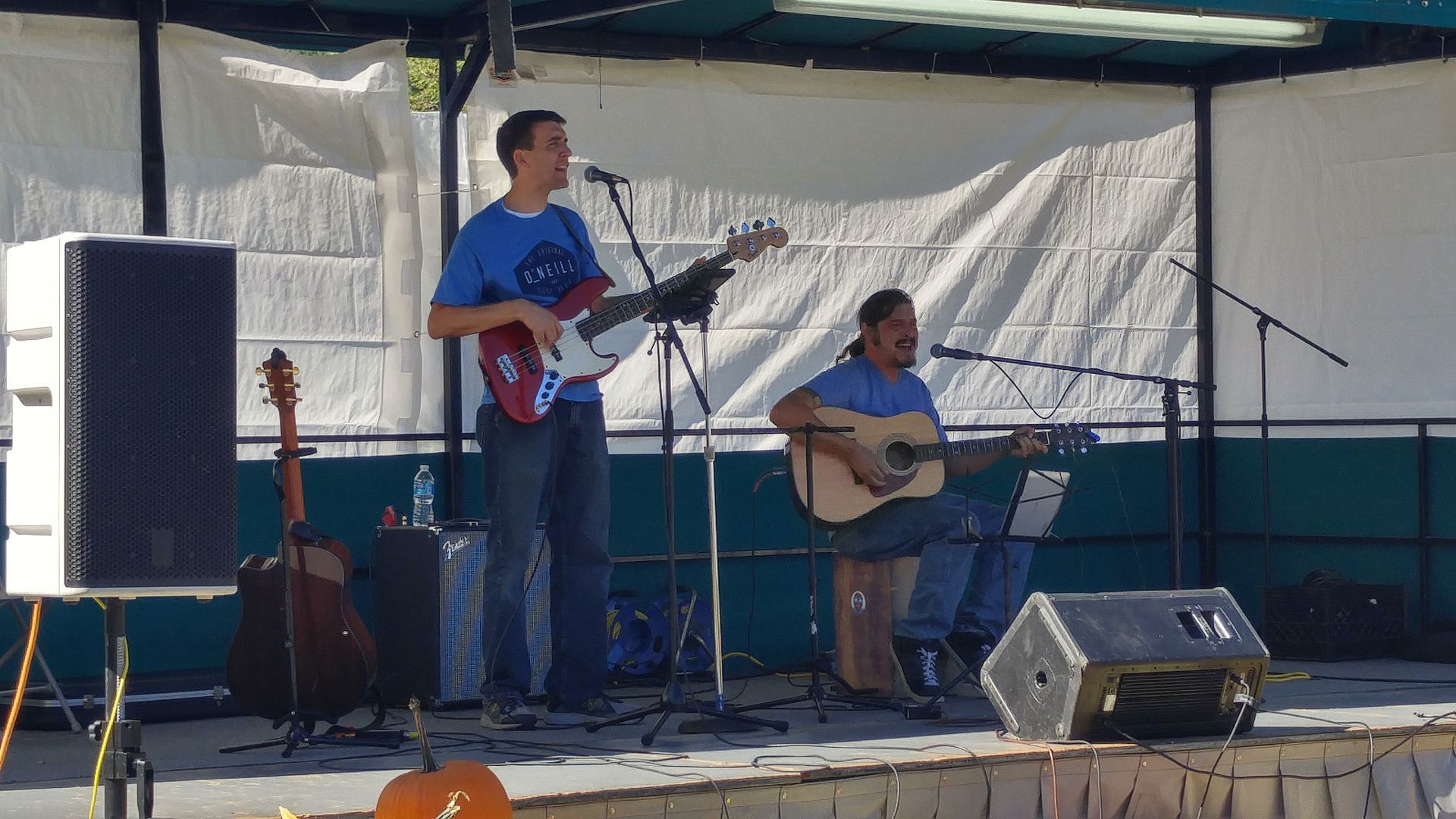
On the other side, the GBF went country with the local group Haleytown – population 5. (The sign is a neat touch.)
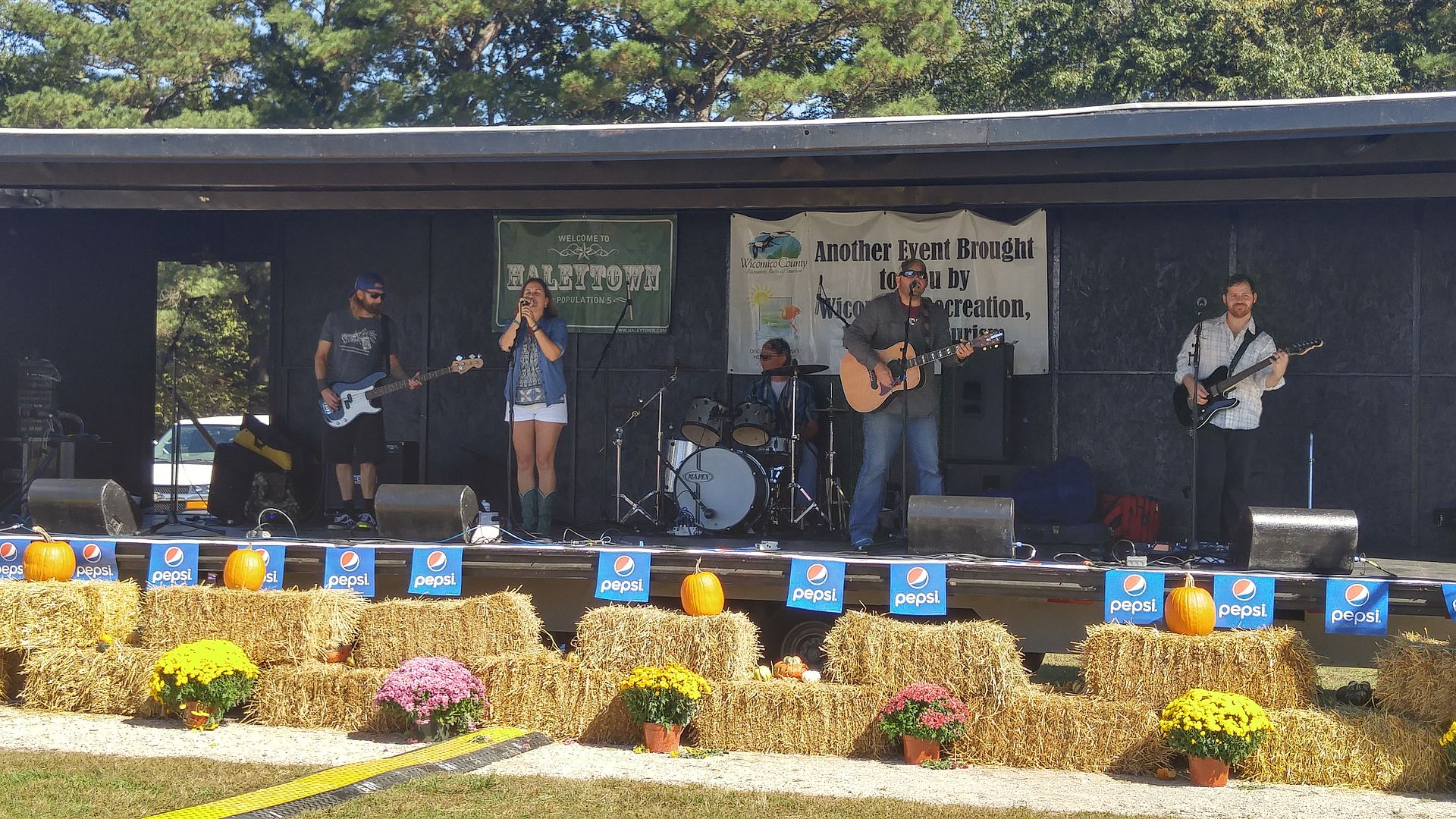
Chris Diller set CDs and stickers at each table, and hoped people would fill the guitar case.
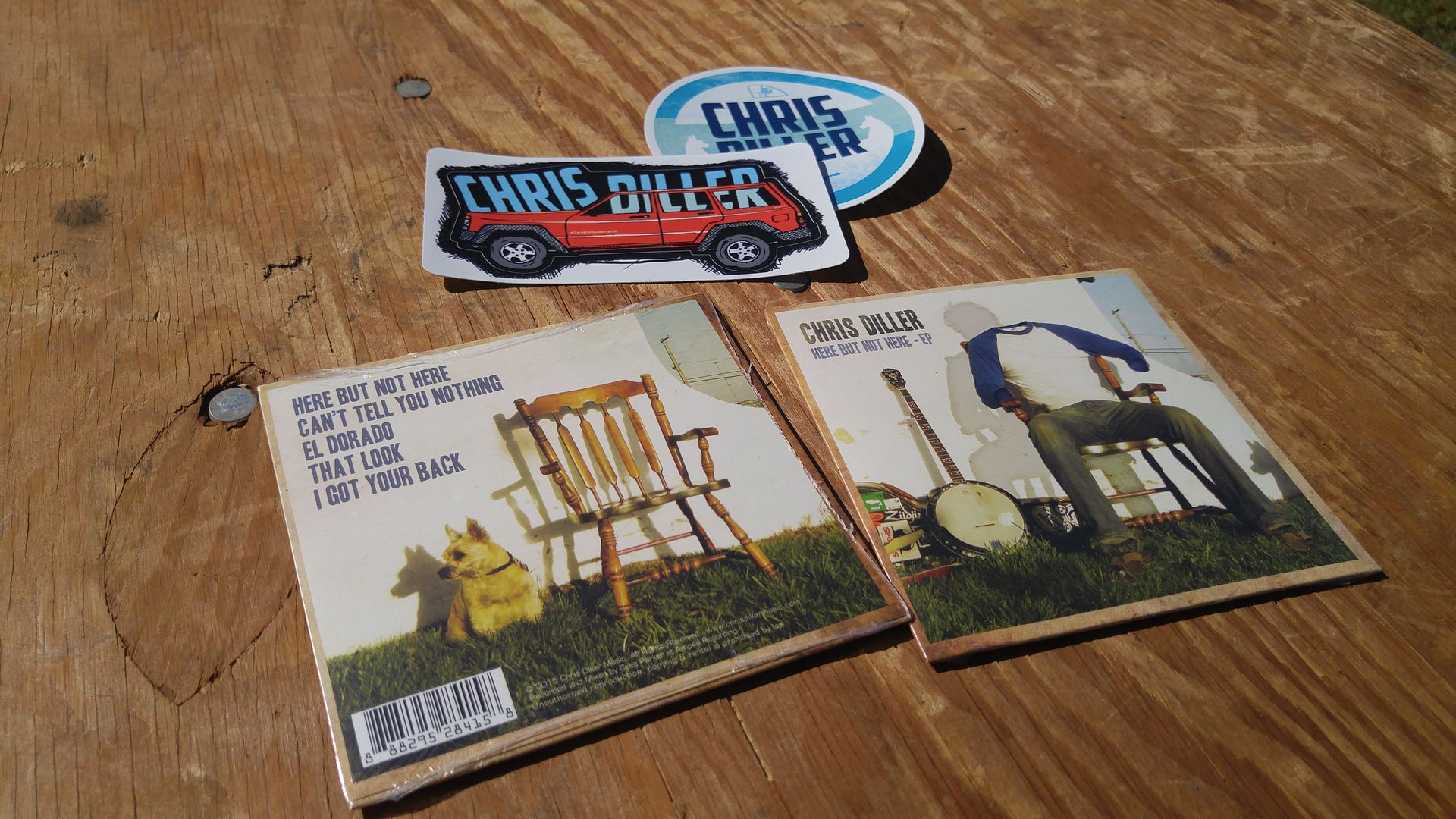
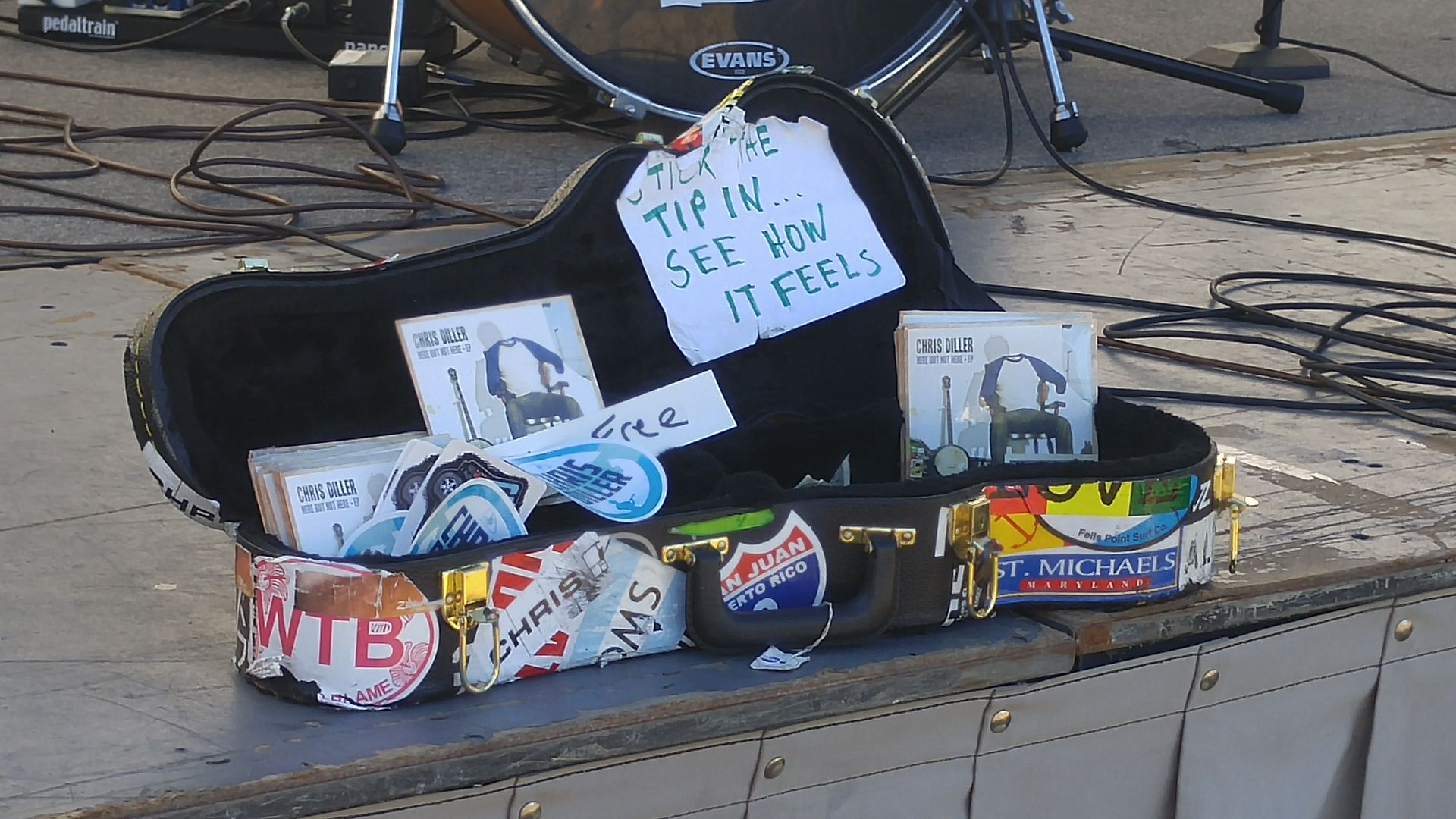
It always intrigues me how a guy can play so many instruments at once – needless to say, I can’t carry a tune in a bucket.

On the main stage was the group I thought stole the show, Sub-Radio Standard. It was the group I would have expected to close out Saturday.

Ken Wenzel was the headliner, if you will, of the bar stage. He played songs off the CD.
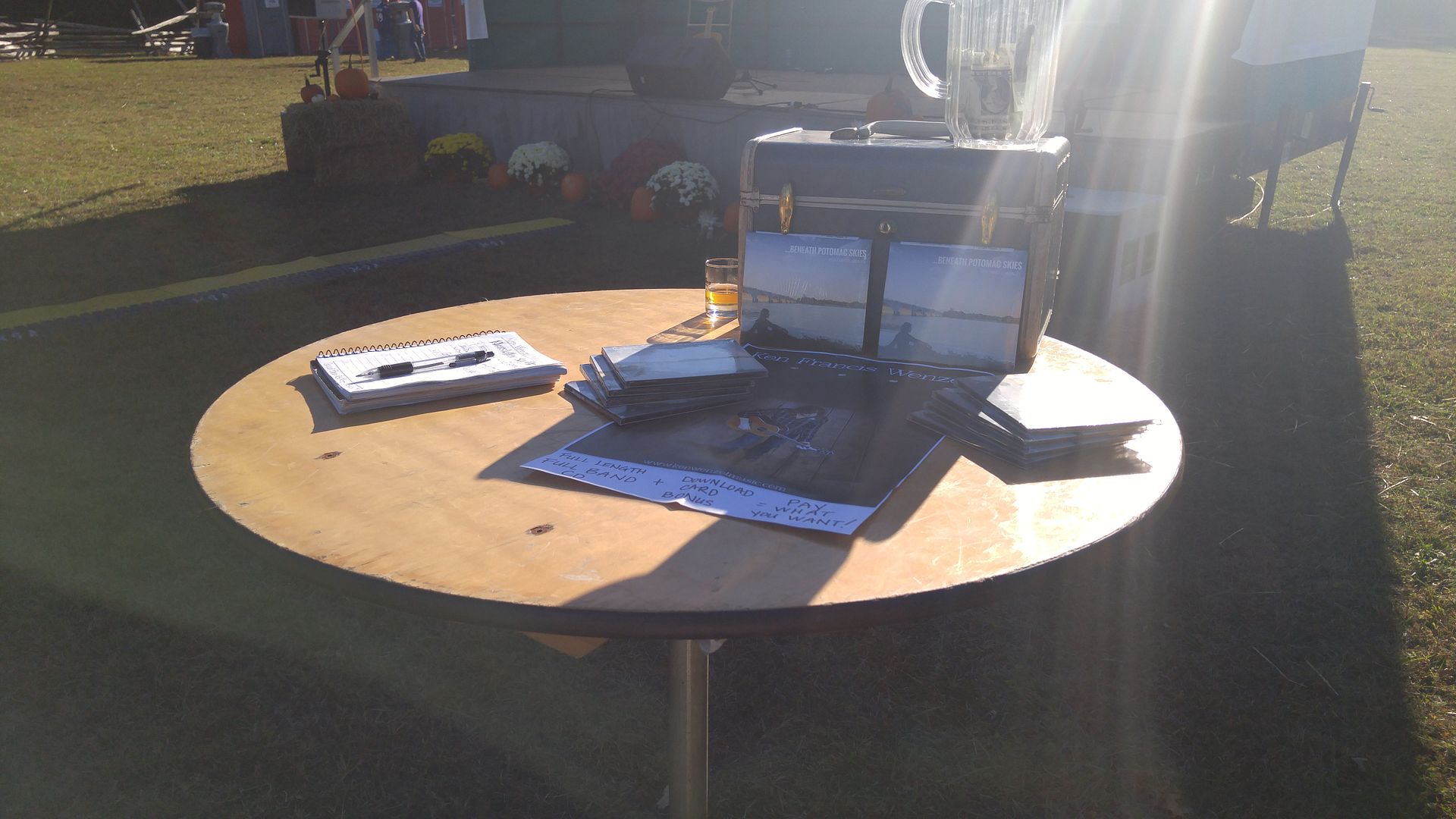

The Will Overman Band did their country best to wrap things up. I wish I had slipped around backstage to get a photo of “Big Red” – a 1970 Chevy Suburban they tour in.
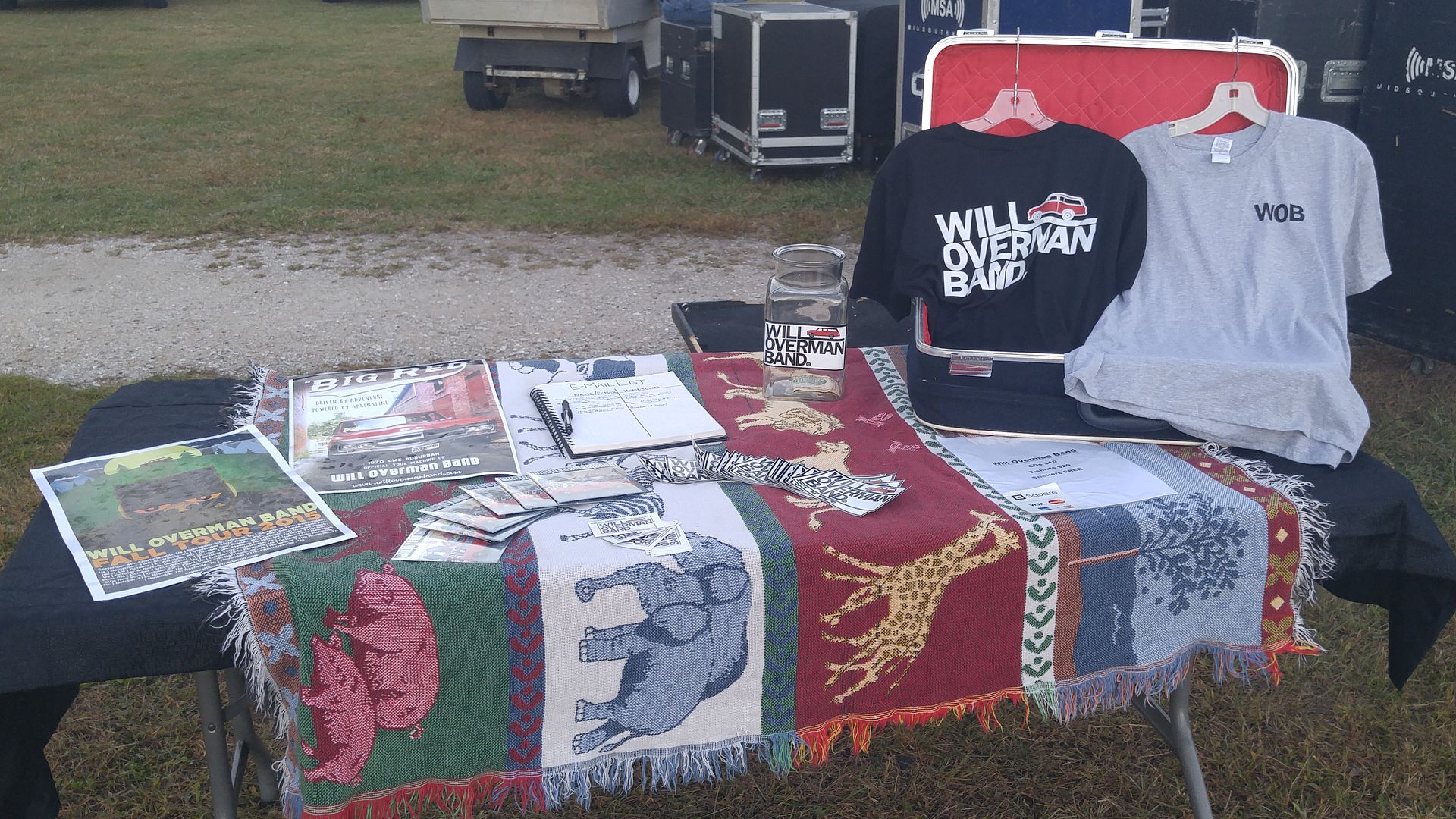
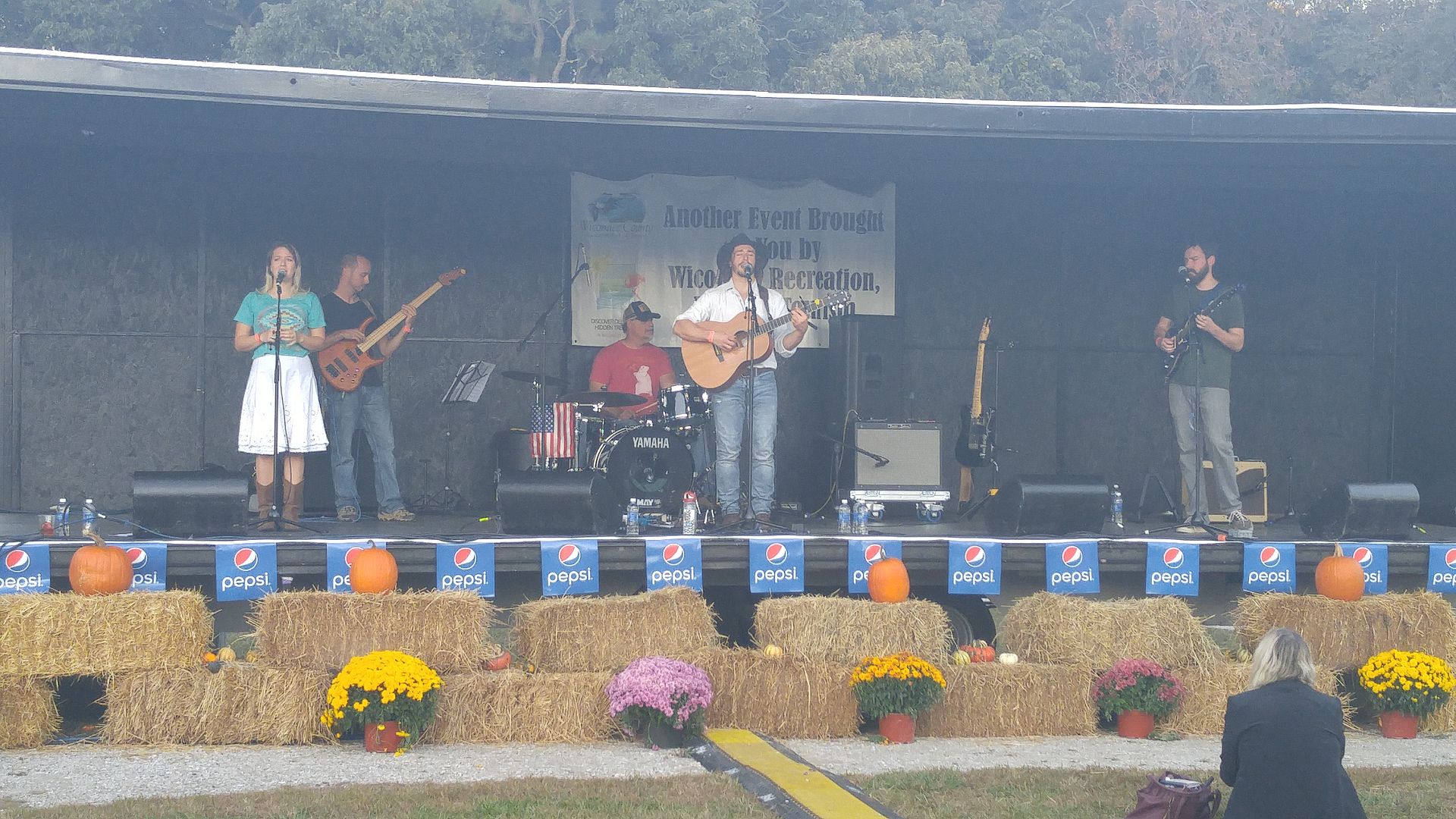
So I was a little loose with the definition of “rock” in this one. Next year may be the year to just put the rock bands on Saturday and the country stuff on Sunday, since it seems to be getting about equal billing now.
On Sunday I look at the music from the Autumn Wine Festival.


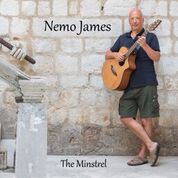 If I were to simply judge this record on the storytelling quality of its lyrics, this would be a winner. Nemo James weaves a number of pleasant tales as a good minstrel would in a 17-song epic which runs over an hour.
If I were to simply judge this record on the storytelling quality of its lyrics, this would be a winner. Nemo James weaves a number of pleasant tales as a good minstrel would in a 17-song epic which runs over an hour. If you are looking for something bluesy with soul, you won’t be disappointed with this effort by Texas-based Andy Evans. “Miracle” isn’t a long album as it’s barely over 30 minutes long, but the nine tracks feature a pleasing variance in the guitar-based sound Evans puts out.
If you are looking for something bluesy with soul, you won’t be disappointed with this effort by Texas-based Andy Evans. “Miracle” isn’t a long album as it’s barely over 30 minutes long, but the nine tracks feature a pleasing variance in the guitar-based sound Evans puts out.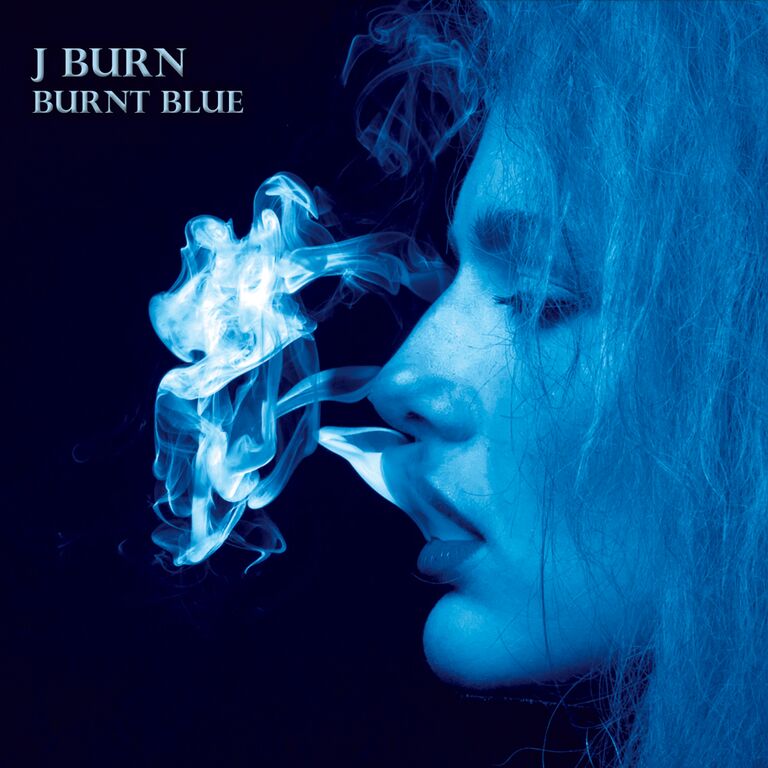 Today I review a four-song EP by the San Francisco-based guitarist J Blue. When this EP came out in late June, it was billed as the lead-in to a full-length effort by the band, which boasts two members of Bob Weir’s band RatDog. The EP was even recorded at TRI Studios, which Weir owns.
Today I review a four-song EP by the San Francisco-based guitarist J Blue. When this EP came out in late June, it was billed as the lead-in to a full-length effort by the band, which boasts two members of Bob Weir’s band RatDog. The EP was even recorded at TRI Studios, which Weir owns. Sometimes there is a natural marriage between modern jazz and rock music. While the two genres don’t often meet and create commercial success, it doesn’t mean those with an appreciation of both styles don’t stop trying. Such is the case with guitarist Gideon King and the New York-based cast of studio players he’s selected known collectively as City Blog. (An interesting name, to be sure.)
Sometimes there is a natural marriage between modern jazz and rock music. While the two genres don’t often meet and create commercial success, it doesn’t mean those with an appreciation of both styles don’t stop trying. Such is the case with guitarist Gideon King and the New York-based cast of studio players he’s selected known collectively as City Blog. (An interesting name, to be sure.)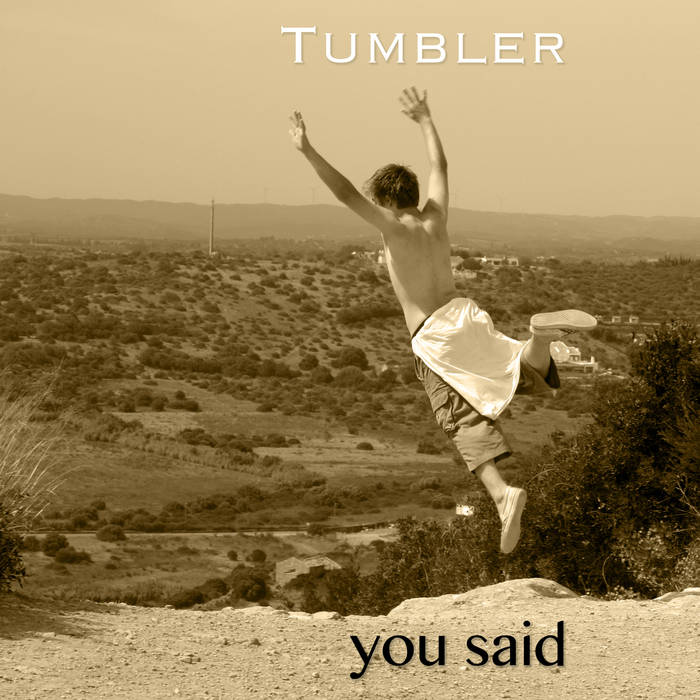 Oftentimes when I do a review, I listen to the music first then read up on the backstory to fill in details. In the case of this fresh release by British-based Tumbler, the story behind it explains in large part why the album is a gem, a bit of a throwback in an era with Autotune and bands that stress rhythm over harmony and acquiring bling over musicianship.
Oftentimes when I do a review, I listen to the music first then read up on the backstory to fill in details. In the case of this fresh release by British-based Tumbler, the story behind it explains in large part why the album is a gem, a bit of a throwback in an era with Autotune and bands that stress rhythm over harmony and acquiring bling over musicianship. Have you ever heard of Hawaiian Slack Key guitar? Me neither, but Stephen Inglis has been playing it for years and his talents are featured on his latest collection, which came out in June.
Have you ever heard of Hawaiian Slack Key guitar? Me neither, but Stephen Inglis has been playing it for years and his talents are featured on his latest collection, which came out in June. As the summer comes to an end this Labor Day weekend, the time for throwing the car windows open and cranking out the tunes is drawing to a close. That’s why it’s sort of a shame that this album won’t actually drop until October 9, when the days are starting to turn cooler. Once you get through the brief intro of Entry, the song Sunrise begs to be turned up.
As the summer comes to an end this Labor Day weekend, the time for throwing the car windows open and cranking out the tunes is drawing to a close. That’s why it’s sort of a shame that this album won’t actually drop until October 9, when the days are starting to turn cooler. Once you get through the brief intro of Entry, the song Sunrise begs to be turned up.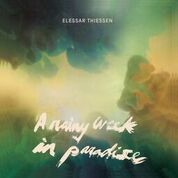 Oftentimes when I review a musical work, my mind tries to categorize it into something that it sounds like. But the recent release by Winnipeg’s Elessar Thiessen eludes that pigeonholing; traversing the territory of adult contemporary music with ease.
Oftentimes when I review a musical work, my mind tries to categorize it into something that it sounds like. But the recent release by Winnipeg’s Elessar Thiessen eludes that pigeonholing; traversing the territory of adult contemporary music with ease. After hearing the upcoming release by this West Coast-based band, it’s no wonder they have a deal in place with Inhesion Records and have opened for several more established groups: The Liquorsmiths have the talent and the unique niche to break through within their chosen folk-country genre. (I really like the cover, too.)
After hearing the upcoming release by this West Coast-based band, it’s no wonder they have a deal in place with Inhesion Records and have opened for several more established groups: The Liquorsmiths have the talent and the unique niche to break through within their chosen folk-country genre. (I really like the cover, too.)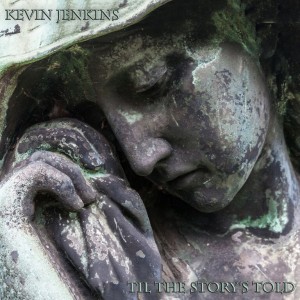 I don’t know the artist personally, but I get the impression Kevin Jenkins has spent a lot of time in church – not just worshiping, but listening.
I don’t know the artist personally, but I get the impression Kevin Jenkins has spent a lot of time in church – not just worshiping, but listening.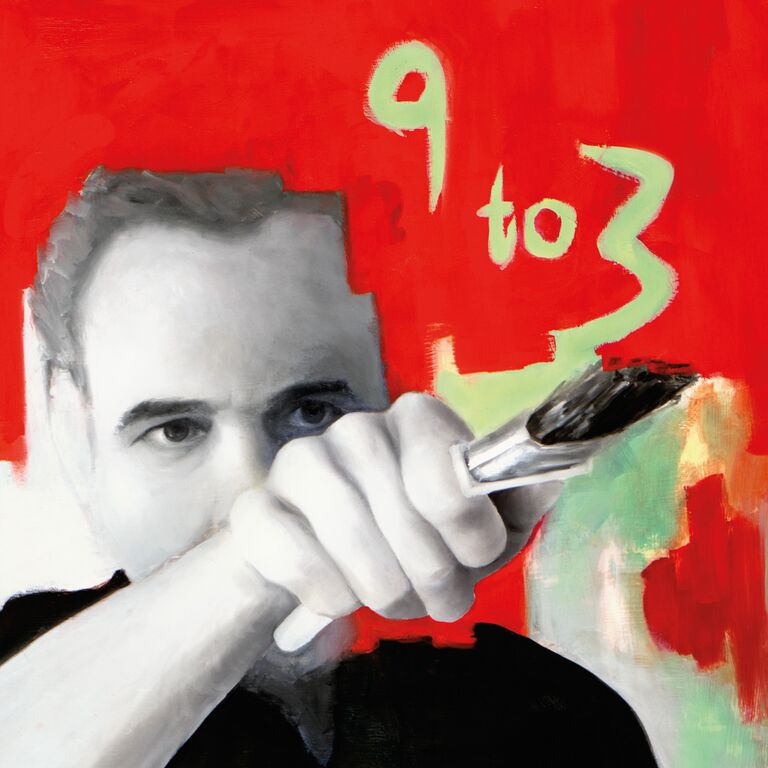 When a compilation has 15 tracks and runs over 62 minutes, you hope there’s a lot to like. Indeed, there is quite a lot of good stuff on this guitar (and sitar) player’s latest solo effort, which he describes in part on his Facebook and Soundcloud pages as “Bollyrock.” It’s appropriate as Mathur was born in India but now makes his home in Switzerland.
When a compilation has 15 tracks and runs over 62 minutes, you hope there’s a lot to like. Indeed, there is quite a lot of good stuff on this guitar (and sitar) player’s latest solo effort, which he describes in part on his Facebook and Soundcloud pages as “Bollyrock.” It’s appropriate as Mathur was born in India but now makes his home in Switzerland.